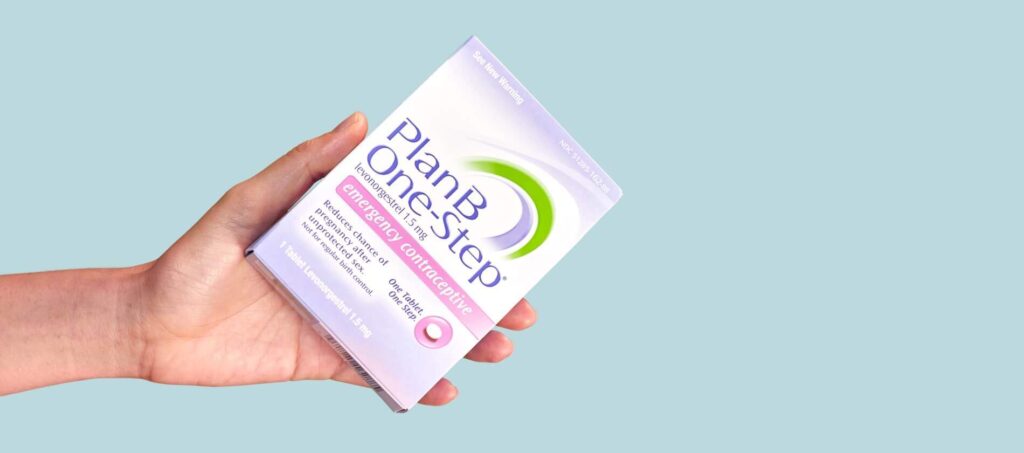Which Emergency Contraception Pill is Right for You?
Emergency contraception has been having a moment. Whether you noticed the recent headlines in your feed or streamed Hulu’s “Shrill,” you may have wondered whether so-called weight limits on EC are fake news or not.
So we’re here to set the record straight on emergency contraception, both its superpowers and its limitations. EC prevents an unintended pregnancy after unprotected sex. If you’re among the 5.5 million women who rely on condoms as their go-to for birth control, emergency contraception can be a lifesaver if the condom slips off or tears (plus, EC works days longer than the “morning after,” which is why we’re not calling it the “morning after pill”).
Here, we’ll break down everything you need to know to use EC effectively, including which option (Nurx offers two!) might be right for you.
What are the options for emergency contraception?
There are two types of FDA-approved emergency contraception, Plan B and Ella. What’s the difference, you might ask? The short answer: Ella is more effective but Plan B is easier to get your hands on. Both come with some caveats. We’ll explain.
What are the Pros and Cons of Plan B?
Plan B One-Step is a single pill of levonorgestrel (a hormone that works like the progesterone found in some birth control pills). The hormone delays or prevents the release of an egg, and also interferes with fertilization and the egg attaching to your uterus.
You can take Plan B up to three days after unprotected sex, but it’s best to take it within 24 hours, when it’s up to 95% effective. The main benefit of Plan B: It’s available without a prescription. You can find it at many drugstores (though it may be behind the pharmacist’s counter rather than on the shelves) and can order it online.
As for side effects, taking Plan B may make your next flow a bit heavier than usual, although fewer than one in three women reported this side effect, per the FDA. Other possible side effects include nausea, stomach pain, tiredness, headaches, and dizziness. None of these side effects approach what you’d experience in the first trimester of a pregnancy though.
Certain prescription medications, over-the-counter meds, and herbal supplements can interfere with Plan B, making it less effective.
What are the Advantages of Ella?
FDA-approved in 2010, Ella contains the active ingredient ulipristal acetate, a hormone-blocker that prevents or delays ovulation. Ella is more effective than Plan B — and works up to five days after you’ve had unprotected sex, notes Nurx nurse practitioner Courtney P. Sherman. Plus, she says Ella has less of a weight issue (which we’ll get to soon). But, Ella is only available with a prescription.
Potential side effects with Ella are similar to Plan B. You may get your period a bit earlier or later after taking Ella. Fewer than one in four women reported headaches after taking Ella, per the FDA. Because Ella contains a hormone-blocker, it may interfere with certain types of birth control. Wait five days after using Ella to take hormonal birth control. Also, don’t take Ella if you’re breastfeeding, or use it more than once in your cycle.
Does emergency contraception have a weight limit?
The research on this question is muddy. Although studies suggest Plan B One-Step might be less effective if you’re over 176 pounds, the results aren’t conclusive. (Given that the average American woman weighs 170.5 pounds, this would be good to know, right?) In a Q&A post on the weight question, the FDA nixed the idea of adding a warning label to Plan B and generic versions of the product, explaining “conflicting” data were “too limited to make a definitive conclusion.”
Meanwhile, Ella seems like a safer bet for bigger women, though it might be less effective if your BMI is 30 or higher.
To make sense of this all, we asked Nurx’s Sherman how your weight may affect the odds of pregnancy with EC. She told us women with a BMI of 26 or greater who take Plan B within 72 hours of unprotected sex have a 50-50 chance of pregnancy, but with Ella a woman with a BMI of 35 or higher can get that same level of protection.
The bottom line? She prefers Ella, which Nurx can mail to you within the five-day window. However, she suggested you chat with a Nurx provider if you can’t take Ella (and your BMI is 26 or greater), because a Nurx provider may recommend taking two Plan B pills rather than just one. Don’t do this without first talking to a provider!
Which emergency contraception is right for me?
It bears repeating that the best EC is the one you can access. Nurx can call in a prescription for Plan B or Ella to your local pharmacy, or can send Ella directly to you within the five-day window. Even though Plan B is available OTC, if Nurx calls in a prescription and submits it to insurance it will save you money. Ideally, you’ll think about this before you need to, and not when you’re in panic mode. You might want to have emergency contraception on hand in case you ever need it, especially if you rely on condoms for birth control.
Nurx providers are here to help. You can message confidentially with them about your health history and potential side effects, and they’ll walk you through your options to land on the choice that’s right for you.
This blog provides information about telemedicine, health and related subjects. The blog content and any linked materials herein are not intended to be, and should not be construed as a substitute for, medical or healthcare advice, diagnosis or treatment. Any reader or person with a medical concern should consult with an appropriately-licensed physician or other healthcare provider. This blog is provided purely for informational purposes. The views expressed herein are not sponsored by and do not represent the opinions of Nurx™.







